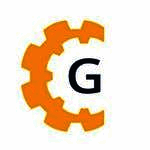Description

Advik Zoho Mail Backup Tool

Keboola
Comprehensive Overview: Advik Zoho Mail Backup Tool vs Keboola
As of my knowledge cutoff date in October 2023, I don't have specific information on either an "Advik Zoho Mail Backup Tool" or "Keboola" as a product directly related to Zoho Mail backup. However, I can provide a general overview of the concepts of mail backup tools and data integration platforms like Keboola, which could serve as a comparison framework based on typical functionalities and market position of similar products. Bear in mind that the information might need to be updated based on the latest market developments.
a) Primary Functions and Target Markets
Advik Zoho Mail Backup Tool
- Primary Functions: Typically, a tool like Advik Zoho Mail Backup would be designed to backup emails, attachments, and other related data from Zoho Mail to ensure data recovery and accessibility. This kind of software usually provides features for downloading emails in formats like PST, MBOX, EML, or PDF, and may allow for scheduling regular backups, ensuring data preservation, and maintaining data integrity.
- Target Markets: Such a tool is often targeted toward small to medium-sized businesses (SMBs), IT administrators, and individuals who require reliable email backup solutions. It caters to users who depend heavily on Zoho Mail for communication and need to ensure that their emails are backed up for compliance, security, or data recovery purposes.
Keboola
- Primary Functions: Keboola is a data operations platform designed to simplify data integration and analytics for businesses. Its main functions include data extraction, transformation, loading (ETL), automation, and orchestration of data workflows. It is typically used for centralizing data from multiple sources to enable better business intelligence and analytics.
- Target Markets: Keboola is aimed at businesses of all sizes that require sophisticated data management and analytics solutions. Its clients are often in sectors like technology, finance, e-commerce, and marketing, where large amounts of data from various sources need to be integrated and analyzed.
b) Market Share and User Base
The market share and user base can be difficult to determine precisely without the latest data, but general trends can be identified:
-
Email Backup Tools (e.g., Advik Zoho Mail Backup): These are niche tools with a user base that typically includes IT departments within organizations using Zoho Mail. Their market share might be limited compared to more comprehensive software solutions but they play a critical role in the operational infrastructure of businesses relying on Zoho services.
-
Data Integration Platforms (e.g., Keboola): Keboola competes with larger data management and integration platforms such as Talend, Informatica, and Matillion. The market for data integration tools is expansive, with a growing user base due to the increasing importance of data in decision-making. Companies like Keboola cater to a broader market because data integration and analytics are critical to business operations across various industries.
c) Key Differentiating Factors
-
Functionality and Purpose:
- An email backup tool like Advik Zoho Mail Backup is purpose-specific, focusing on providing reliable backup and recovery for email data.
- Keboola provides a broader set of capabilities aimed at data integration, transformation, and analytics, supporting a more diverse range of data sources beyond just emails.
-
Integration and Customization:
- Advik Zoho Mail Backup Tool likely offers specific integrations with Zoho Mail and limited customization beyond email management.
- Keboola is built for extensive customization and integration with a multitude of data sources and can support complex ETL processes.
-
Market Focus:
- Advik-like tools focus on users seeking straightforward solutions for email backup and recovery.
- Keboola's solutions appeal to organizations looking for in-depth analytics and data management capabilities, catering to strategic business needs.
This overview is based on a generalized understanding of the types of tools in these categories and their typical market positions and functionalities. If these specific products exist under different conditions or brand profiles, consulting the vendors’ latest product descriptions and user reviews would be necessary for precise comparisons.
Contact Info

Year founded :
Not Available
Not Available
Not Available
Not Available
Not Available

Year founded :
2008
+420 739 632 821
Not Available
Czech Republic
http://www.linkedin.com/company/keboola
Feature Similarity Breakdown: Advik Zoho Mail Backup Tool, Keboola
Advik Zoho Mail Backup Tool and Keboola are distinct tools with different primary functionalities, mainly focusing on email backup and data integration/analytics, respectively. However, if we are to compare them, especially in the context of broader data handling, we can identify some overlaps and unique points.
a) Core Features in Common
- Data Export/Backup:
- Both tools have capabilities related to data transfer. Advik Zoho Mail Backup specializes in exporting emails from Zoho Mail to various formats (e.g., PST, EML, MBOX, etc.), while Keboola facilitates data extraction and migration as part of its broader data integration functions.
- Data Security:
- Both prioritize data security but in their respective domains. Advik focuses on ensuring that backup processes do not compromise email data integrity, while Keboola offers secure data handling practices in the context of data integrations and pipelines.
b) User Interface Comparison
-
Advik Zoho Mail Backup Tool:
- The interface is typically straightforward, designed for user-friendly access to backup functionalities. It generally presents a simple dashboard where users can select backup options, such as target formats and destination paths, with minimal configuration needed.
-
Keboola:
- On the other hand, Keboola provides a more complex and versatile interface due to its comprehensive set of data operations. The UI is tailored towards data professionals, featuring dashboards for integrating, managing, and visualizing data workflows. It likely includes more graphical elements and customizable options due to its advanced functionality.
c) Unique Features
-
Advik Zoho Mail Backup Tool:
- Email-Focused Capabilities: Its primary strength and uniqueness lie in its specialized tools for backing up Zoho email content specifically, supporting direct export to multiple formats.
- Simplified Backup Process: Designed for easy execution of tasks related to email data extraction, often with automated scheduling options for regular backups.
-
Keboola:
- Data Integration and ETL: Offers robust data integration features, effectively managing ETL (Extract, Transform, Load) processes across diverse data sources and endpoints, something Advik does not handle.
- Customizable Workflows: Provides substantial options for creating custom workflows and automation, supporting a wide variety of business intelligence and data analysis needs.
- Collaborative Environment: Provides tools for collaborative work on data projects, enabling multiple users to work together on data pipelines and transformations.
In summary, while both tools manage some form of data handling and security, their overlap is minimal. Advik Zoho Mail Backup Tool remains focused on email backup from Zoho Mail, offering simplicity and specialization, whereas Keboola stands out with its advanced data integration capabilities and flexible, collaborative environment.
Features

Not Available

Not Available
Best Fit Use Cases: Advik Zoho Mail Backup Tool, Keboola
To effectively determine the best fit use cases for the Advik Zoho Mail Backup Tool and Keboola, we need to consider the core functions and target users of each solution.
Advik Zoho Mail Backup Tool
a) Best Fit Use Cases:
- Type of Businesses or Projects:
- Small to Medium Enterprises (SMEs): Businesses using Zoho Mail as their primary email service would benefit from a robust backup solution like Advik to ensure data security and compliance.
- Legal and Compliance Driven Organizations: Companies that need to archive email communications for legal or compliance reasons would find this tool useful to create secure, retrievable backups.
- IT Departments: IT teams that require a straightforward, reliable process to back up email data for company continuity and disaster recovery purposes.
- Freelancers and Small Teams: Individuals or small teams who use Zoho Mail heavily and need to ensure easy access to historical email data.
Keboola
b) Preferred Use Cases:
- Type of Businesses or Projects:
- Data-Driven Enterprises: Businesses involved in data analytics, warehousing, and processing would benefit from Keboola's advanced data operations capabilities.
- Companies Implementing Data Integration and ETL Processes: Organizations looking to integrate various data sources and automate transformation processes.
- Startups and SMEs in Tech-Driven Industries: Tech-focused startups need scalable, flexible data management platforms to optimize their data operations as they grow.
- Marketing Agencies and Departments: Agencies involved in data-driven campaigns can use Keboola to integrate, cleanse, and analyze marketing data from multiple sources.
Industry Verticals and Company Sizes
Advik Zoho Mail Backup Tool:
- Industries: Suitable for sectors like legal services, consultancy, and other fields deeply reliant on email communication for records and compliance.
- Company Sizes: Primarily caters to smaller businesses and specific teams within larger organizations who use Zoho Mail heavily and need a simple, efficient backup and archiving solution.
Keboola:
- Industries: Ideal for industries that are data-intensive, such as finance, e-commerce, retail, healthcare, and advertising, where data integration and transformation are critical to business operations.
- Company Sizes: Scalable for both startups and large enterprises that need to manage complex data operations, supporting growth and data strategy development efficiently.
By aligning these tools with the needs of specific business types, sectors, and sizes, organizations can leverage them to enhance their data management and backup strategies effectively.
Pricing

Pricing Not Available

Pricing Not Available
Metrics History
Metrics History
Comparing teamSize across companies
Conclusion & Final Verdict: Advik Zoho Mail Backup Tool vs Keboola
To provide a comprehensive conclusion and final verdict for Advik Zoho Mail Backup Tool and Keboola, let's break down the evaluation based on the criteria and insights available.
a) Considering all factors, which product offers the best overall value?
Keboola generally offers the best overall value if your needs center around data integration and analytics beyond simple mail backup. Keboola is an advanced data platform that can be utilized for more complex workflows, including ETL processes, data modeling, and business intelligence. It is ideal for users who require robust data processing and integration capabilities.
Advik Zoho Mail Backup Tool, on the other hand, is more specialized and provides excellent value for users needing a straightforward, reliable solution for backing up Zoho Mail data. If your primary requirement is efficient email backup with easy restoration and migration capabilities, Advik’s tool may be the better choice.
b) Pros and Cons of Choosing Each Product
Advik Zoho Mail Backup Tool
Pros:
- Specialized Functionality: Tailored specifically for Zoho Mail backup, ensuring reliability and simplicity in email data protection.
- Ease of Use: User-friendly interface designed for quick setup and operation.
- Cost-Effective: Generally more affordable if you specifically need email backup and related features.
- Data Security: Provides encryption and local storage options for secure data handling.
Cons:
- Limited Scope: Primarily focused on email backup, lacking broader data integration capabilities.
- Scalability: May not scale well for large organizations with diverse data handling needs beyond email.
Keboola
Pros:
- Versatile Platform: Supports a wide range of data integrations and analytics workflows, making it suitable for complex data environments.
- Scalability: Can scale with the needs of growing businesses that require comprehensive data solutions.
- Enhanced Collaboration: Features that support collaborative data processes within teams.
- Automation and Management: Capabilities to automate data processes and manage workflows efficiently.
Cons:
- Complexity and Learning Curve: More complex to set up and use compared to dedicated backup tools; may require technical expertise.
- Cost: Likely to be more expensive, especially if you do not need its extensive suite of features.
c) Specific Recommendations for Users
-
For Users Primarily Focused on Email Backup: If your main concern is backing up Zoho Mail with reliability and simplicity, leaning towards the Advik Zoho Mail Backup Tool would be beneficial. It serves this purpose effectively without the additional complexities and costs of a broader platform.
-
For Users Needing Comprehensive Data Management: If your operations extend beyond simple email backup to include data integration, analytics, and large-scale data management, Keboola presents a more suitable option despite its higher complexity and cost. Organizations with diverse data workflows will benefit from its extensive capabilities.
-
Decision Based on Organizational Needs: Analyze the specific needs of your organization concerning data handling. If your requirement is predominantly within the email domain, opt for Advik. If broader data solutions are necessary, consider Keboola for its extensive features.
In conclusion, both tools provide value, but their applicability hinges on your specific use case. Choose Advik for a focused email backup solution and Keboola for a broader, integrated data management system.
Add to compare
Add similar companies




